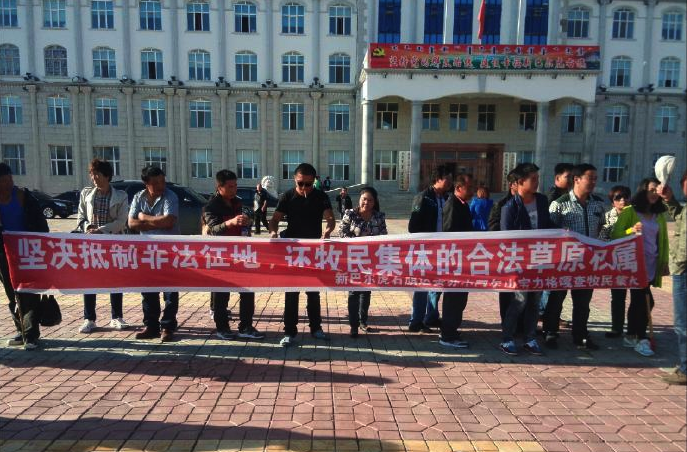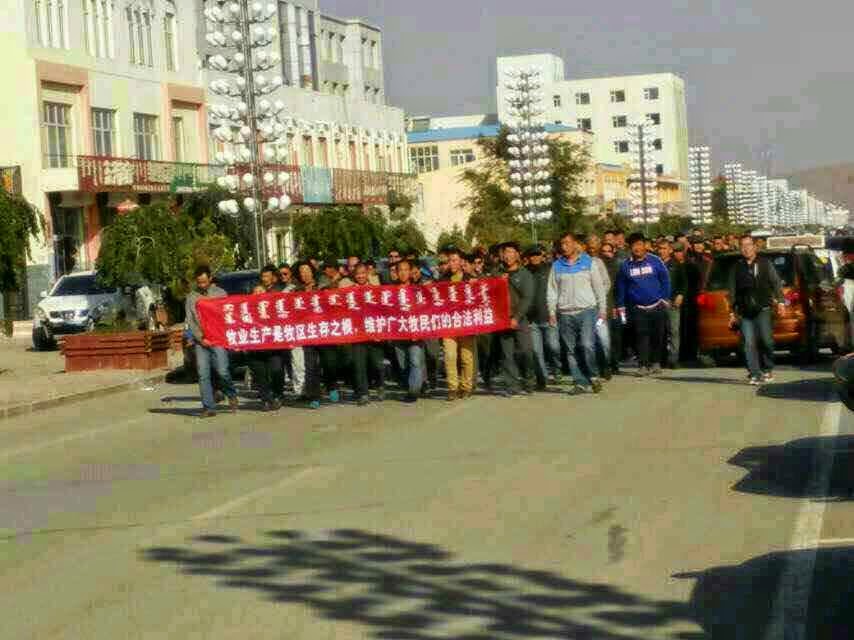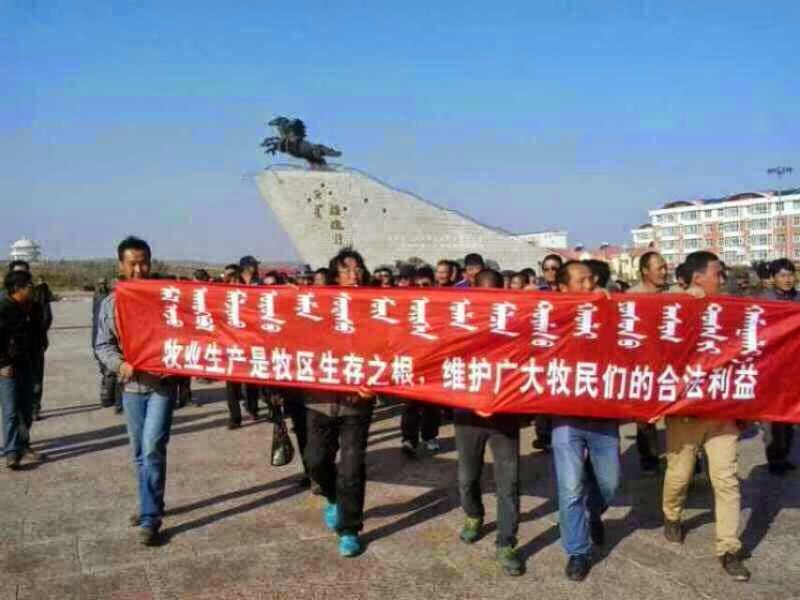Nearly 400 Mongolian herders from
central Southern (Inner) Mongolia’s
Huvuut-shar Banner ("xiang huang qi"
in Chinese) took to the streets of
the Banner capital on October 8,
2014, carrying signs calling for
protection of their traditional
economy amid competition from
government and corporate monopolies.
A banner is a jurisdiction similar
to a county in the West.
In a written statement provided to
the Southern Mongolian Human Rights
Information Center (SMHRIC), the
herders cited the illegal taking of
their grazing land; concerns about
mining; official inaction on natural
disasters; and delays in
compensation payments.
"Slaughter houses and meat
processing companies that poured
into Southern Mongolia are sheer
corporate monopolies...for the sole
purpose of making profit they not
only violate relevant laws and
regulations but also pay no regard
to conventions of pastoralist
economy," the herders said in the
statement, which was entitled "Huvuut-shar
Banner Herders' Demands to the
Government". The herders also
demanded that the government put to
an end to corporate monopoly in
pastoralist communities, and punish
corrupt officials who support
corporate monopoly at the cost of
herders’ economic wellbeing.
"A few years ago the Banner
Government announced that the
Banner’s GDP has topped 0.2 billion
yuan," the statement continued.
"This was achieved by opening up
oil, natural gas and other mineral
resources from our grazing lands.
Yet, not only did the government
fail to respond to the natural
disasters that strike our herders’
communities, but also it refused to
pay the subsidies and compensations
that we are entitled to receive."
Fearing that protest would spread,
the Banner Government quickly
arranged a meeting between the
herders’ representatives and the
Governor and Party Secretary.
In a second written statement, the
herders said the Banner Government
promised:
1. As subsidy to hay and fodder,
1,500 Yuan (approx $350 USD) will be
paid to every household in cash card
form;
2. As disaster relief fund, each
household will be paid in cash card
form 5 Yuan (approx $0.90 USD) per
head of livestock in accordance with
the livestock inventory taken on
June 30, 2014;
3. 20% of the unpaid compensation
for environmental loss will paid to
each household in five days in cash
card form;
The statement also said the
Government "will respond to the
remaining questions in five days."
As China accelerates its economic
exploitation in Southern Mongolia,
Mongolian herders are being forced
to give up grazing land to mining or
tourism industries, and to national
development projects. Desperate
herders have taken to the streets to
demand that their rights be
protected, only rarely receiving
positive responses from the local
authorities.
In another recent case, Mongolian
herders from eastern Southern
Mongolia’s Shin-Barag Right Banner
("xin ba er hu you qi" in Chinese)
demonstrated in front of the Banner
Government building. They protested
the appropriation of grazing land by
local authorities and mining
companies, and demanded protection
of herders’ collective rights to
land, minerals, and water.









 Beyond
Great Walls: Environment, Identity, and Development on the Chinese
Grasslands of Inner Mongolia
Beyond
Great Walls: Environment, Identity, and Development on the Chinese
Grasslands of Inner Mongolia China's
Pastoral Region: Sheep and Wool, Minority Nationalities, Rangeland
Degradation and Sustainable Development
China's
Pastoral Region: Sheep and Wool, Minority Nationalities, Rangeland
Degradation and Sustainable Development The
Ordos Plateau of China: An Endangered Environment (Unu Studies on
Critical Environmental Regions)
The
Ordos Plateau of China: An Endangered Environment (Unu Studies on
Critical Environmental Regions)